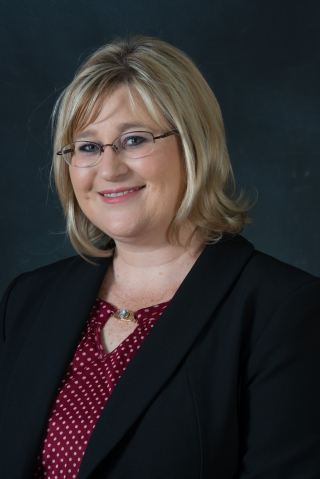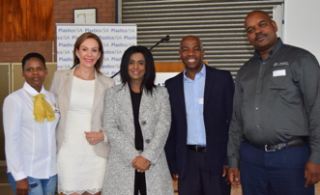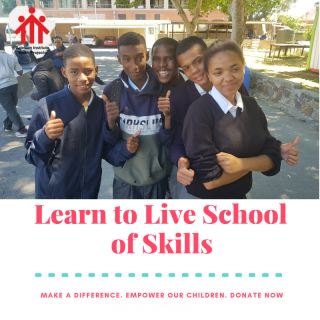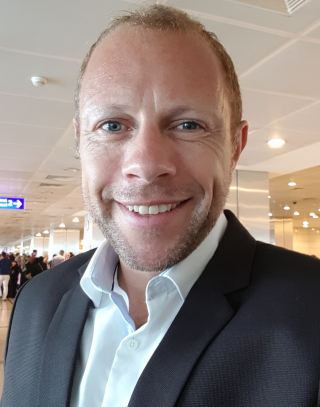B-BBEE TRAINING SOLUTIONS OFFERED BY CAD4ALL NATIONWIDE
Flexible, Affordable and relevant B-BBEE Skills development products which assists our clients in gaining the much-needed B-BBEE Scorecard points via Skills development, enterprise and supplier development as well as Holistic CSI initiatives.
he hassle- free B-BBEE solutions offered by CAD4ALL Corporate Training & B-BBEE Solutions includes a dedicated team of experts that manages the requirements imposed by legislation on behalf of all our clients who needs to comply annually CAD4ALL Corporate Training & B-BBEE Solutions manages the Human Resources and Industrial relations on behalf of our clients while remaining cognitive to the fact that our interventions must always be relevant to the client’s business and be aligned to their applicable legislation and policy.
Entering into a training agreement with a 100% LEVEL 1 Black woman owned entity like CAD4ALL which is accredited with the department of higher education and training as well as various SETAS, will contribute to much more rewards for the company partnering with CAD4ALL as well as tax rebates
- Our clients can take advantage of CAD4ALL being a first-time supplier to the company
- Enjoy maximum points gained at a low-cost due to initiative entry incentives such as tax rebates, youth subsidies and other allowed grants
- 135% maximum gain on procurement (Level 1), enhanced to 162% as a new supplier.
- Our end-to-end, full-service offers give you a range of solutions for all your BEE requirements
- We work with you to develop customized and strategic solutions designed to meet your exact needs
- Access to CAD4ALL Campus, the most innovative way to gain maximum points whilst avoiding a loss in staff productivity.
- Enjoy additional BEE points on Enterprise development, supplier development & CSI
- Our solution is closely aligned to the BEE codes of good conduct
- We offer qualifications across all industries – NQF Level 1 to 6.
- Through innovative initiatives and industry-firsts, we ensure that priority elements are met
- We are fully accredited to ensure your peace-of-mind and complete gain of Government incentives
View our video https://www.linkedin.com/feed/update/urn:li:activity:6541228811399372800 email This email address is being protected from spambots. You need JavaScript enabled to view it. for a B-BBEE information pack
Career risk mitigation – the way to go for corporate high flyers
Career risk mitigation – the way to go for corporate high flyers by Michelle Moss* (Signium Africa: www.signium.co.za) 2019 Obsolescence. It happened to VCRs. It also happens to executives, even high flyers; especially the tunnel-vision variety that obsess about the job on hand.
Obsolescence no longer takes decades. It can happen at pace as technologies change and businesses react to new legislation, heightened competition and more demanding customers. Forward-thinking executives increasingly realise they have to be fit for purpose today and in five years’ time. Obsolescence is a career risk and like any risk can be managed by putting proper mitigation strategies in place.
Talent search and management companies – so-called corporate head-hunters – face increasing calls from individuals for a heads-up on changing competency requirements. Often, the request comes from the mid-life CEO, the high achiever who took a leadership role aged 45 and is determined to be in place (or to have moved on to bigger and better things) by the time he or she is 55. Competency-focused future-spotting is driven by the desire to mitigate the risk of a stalled career. However, parameters widen almost immediately.
Reference to relevant literature like the World Economic Forum’s ‘Future of Jobs Report 2018’ and the work of the MIT Initiative on the Digital Economy indicate that personal competencies are inextricably linked to the corporate future. The business or industry vision invariably shapes the personal quest for continuing relevance by individual executives.
A global player like Riverwaves (a world leader in bespoke competency-based HR solutions) is close to these developments. Alexandra Pascu, Riverwaves’ GM - Middle East and Africa, notes: “Customised competency models drive business strategy while delivering benefits across the board - at individual, HR department and organisational levels.”
According to studies on the statistical validation of competency models**, the tangible return on investment includes a 63% reduction in staff turnover through increased employee satisfaction (attributable to greater clarity on performance expectations), a 19% improvement in employee performance and a 12.5% rise in sales and profits (a by-product of competency-based training). Adoption of a bespoke competency model enables organisational vision and values to be translated into employee behaviour.
According to Pascu, the corporate embrace of competency modelling has been accompanied by a global increase in demand for in-house competency training for line managers and talent professionals. So, we see shared focus on future-ready skills by both the organisation and its people (including those in the C-suite).
Individuals looking to avoid personal obsolescence increasingly find themselves working in a de facto partnership with organisations that are just as eager to stay current and relevant. The result doesn’t have to lead to a total immersion in new technologies. We may find ourselves working alongside robots and co-bots while dealing with digitisation and artificial intelligence, but very human attributes will make us special and keep us on top.
The World Economic Forum believes workforces will become even more diverse (multi-racial, multi-cultural and multi-generational with greater female representation). Orchestrating the input of ‘gig’ workers, freelancers, short-term project teams and consultants will be vital as structures become more flexible. Such scenarios help explain a quick competency to-do list suggested by MIT’s Erik Brynjolfssons. He advises us to put our focus on: o Creativity o Emotional intelligence (interpersonal skills, teamwork and leadership) o Passion for our work Apparently, love never goes out of style.
Not even love for what you do.
-- ENDS --
*Michelle Moss is a Director at Signium Africa (previously Talent Africa), a leading South African-based executive search and talent management company servicing sub-Saharan Africa. www.signium.co.za **Meta-analysis study reported in “The economic value of emotional intelligence competencies and EIC-based HR programmes”, Lyle Spencer. In Cherniss, C. and Goleman, D. eds. The Emotionally Intelligent Workplace: How to Select for, Measure, and Improve Emotional Intelligence in Individuals, Groups and Organisations. San Francisco, CA: Jossey-Bass/Wiley 2001. Spencer, Lyle, “Competency Model Statistical Validation and Business Case Development.”www.inscopecorp.com/resources-papers-statistics.aspx, 2004.
Website: www.signium.co.za Tel: +27 11 771 4800 Issued By: Tale Spin Media & Marketing Zelda Williams 082 461 0689 or Gillian Schmid 082 960 3233 This email address is being protected from spambots. You need JavaScript enabled to view it. This email address is being protected from spambots. You need JavaScript enabled to view it.
PLASTICS SA HOSTS INFORMATION SHARING BREAKFAST SESSIONS
Plastics|SA shared updates and latest developments within its training division with a series of well-attended breakfast sessions held around the country recently. The theme of this year’s breakfasts was ‘Curiosity: the path to life-long learning’.
Purpose of the sessions
Explaining the purpose of hosting these annual information-sharing sessions, Kirtida Bhana, Training Executive at Plastics|SA says: “These breakfasts provide the ideal platform to connect with our past, current and potential clients at the beginning of each year. It also allows us to highlight exciting activities in the training division, discuss the latest trends affecting their day-to-day business and identify any specific training needs they might have. The inspiring theme and related insights offered the attendees ‘food for thought’, rather than simply more information.
Training successes
The success of Plastics|SA’s training offerings is clear to see in the more than 3,500 students that successfully completed their training this past year at the company’s training centres in Johannesburg, Cape Town, and Durban. “We have been working hard to create oases of learning at each of these centres by upgrading facilities and equipment that will facilitate hands-on training and practical experience,” Kirtida adds. Commenting on the success of Plastics|SA’s training offering in their business, Geraldine Booyse of Bars Pharmaceuticals had this to say: “The content of the training modules is very interesting and the staff are very knowledgeable. They are able to share their expertise with students across different industries, keep our students motivated and boost their morale”. Michael Noel, an Engineer at Volkswagen who has benefitted from the Raw Materials Programmes at Plastics|SA, added his observation too. He said that Plastics|SA’s trainers have a real understanding of the industry; the students’ needs and how to impart much-needed knowledge in a practical and flexible way.
New and updated programmes
1. New Programme
Plastics|SA added one new programme to its training curriculum for 2018:
Generic Management – a qualification targeting managers, supervisors and all learners who have completed the NQF 4 and Supervisory Management Programmes. Each Learning Programme addresses the outcomes required for specific Unit Standards included in the National Certificate Generic Management – Generic Manufacturing on NQF 5.It consists of the following 5 phases – each of which can be completed separately:
- Phase 1:Workforce Management
- Phase 2:Workplace Operations, Change Management and Communication
- Phase 3:Workplace Risk, Coaching and Knowledge Management
- Phase 4:Workplace Process Optimisation and Efficiencies
- Phase 5: Workplace Project Management and Finances
Programme updates: Welding – addressing a growing need for training thermoplastic welders, Plastics|SA offers NQF2 -Welding in Thermoplastic Fabrication training at its premises in Gauteng, Cape Town and Durban, as well as at companies’ premises. Plastics|SA has done training countrywide in South Africa, as well as in countries such as Botswana, Mozambique, Namibia, Zambia, Tanzania, Malawi, Madagascar and Lesotho.The following is covered: Butt (HDPE) weldingElectro-fusion weldingHot Air weldingHot Air Extrusion weldingSocket Fusion welding: For pipes and fittingsSolvent Cement weldingOverlap welding
Setter skills – originally this Trade Qualification was developed at an NQF Level 4, but has now been reviewed and reworked to an NQF Level 5. Part Qualifications to the trade in the following processes have been developed at an NQF Level 4 viz. Injection Moulding, Blow Moulding and Pipe and Profile Extrusion.
Online learning – aimed at filling certain gaps in the market for soft skills, these online learning offerings were developed by Cross Knowledge in the UK.The programmes aim to transform employees and drive business results and refine and develop soft skills that could give you the competitive edge! Companies are able to purchase licences (one per user), which gives them access to 124 programmes that can be completed in their own time and at their own pace.
Production Technology - The National Certificate in Production Technology NQF Level 2 is a combination of learning outcomes that will provide the qualifying learner with vocational knowledge and skills appropriate to the context of production technology. This is the first qualification in a series of qualifications.
New extruders and blow moulders – Plastics|SA has added 3 new pipe and profile extruders and 3 new blow moulders in all 3 of our facilities around the country.
Conclusion: “We take great pride in offering our customers specialized, customized and contextualized material that addresses their individual needs and those of their workforce. It is hugely rewarding to receive feedback from our customers and the students that we have trained, but this does not mean that we get too comfortable.On the contrary, it inspires us to work even harder and refine our “pockets of excellence” through continuous improvement of training expertise in the various areas”, Kirtida concludes. For more information about the training programmes on offer at Plastics|SA, please visit their website at www.plasticsinfo.co.za/training.
Salesian Institute Youth Projects appeals to South Africans to a Gift of Education this Holiday Season
Salesian Institute Youth Projects of South Africa is calling on South Africans to make a difference, to give at-risk youth a second chance at life with an appeal campaign asking people to make even the smallest donation, which will help fund programmes such as the Learn to Live School of Skills, so that the youth can maximize their future potential.
The Salesian Institute Youth Projects (SIYP) have been providing education, opportunities and emotional support for youth at risk for centuries, offering youth programmes, meals, clothing, life-skills and technical training for youth through education, vocational training, social skills and job placement assistance. The Salesian Institute Youth Projects says that nearly 44% of South African youth either drop out, or do not attend school even though they have a right to basic education. It is these youths who slide into a life of gangsterism, crime, drug and alcohol abuse, violence, poverty and cycle of hopelessness that continues to repeat itself without sustainable unemployment.
The unemployed percentage of youth who do not finish school has reached a critical stage. The Salesian Institute Youth Programmes reduce poverty by making a difference through education and by promoting employment amongst unemployed youth in South Africa. The Institute rely heavily on donations and funding to keep programmes such as the Learn to Live School of Skills alive and operational, although some funding is received from the Western Cape Department of Education and Skills Development it isn’t nearly enough to increase the impact which they hope will affect many lives by the end of 2019.
For more information or to donate go to: https://salesianyouth.org/donate-today/donate/ Or visit the Facebook page: www.facebook.com/SalesianInstituteYouthProjects/
Contact: Frieda Pehlivan, Communications Manager Tel: 012-4521450
CREATING LEADERS, TRADING ON SUCCESS
It is once again the leaders in our country that will make the difference – those with the drive and determination to succeed. CM Trading is facilitating this South African entrepreneurial spirit by introducing the Business Referrers programme which enables individuals with vision, spirit and resolve to either make a successful part-time business or a booming full time enterprise.
“As well as providing the largest retail online trading platform for individuals and companies, we have also seen the need to provide opportunities for individuals to grow their wealth in other ways – hence the development of the Business Referrers programme,” says Daniel Kibel, CM Trading. “Since we started trading in 2012 we have become one of the most trusted trading sites in the world, boasting our presence all over the world and winning many awards including the Best Performing Broker in Africa by Africa investor (Ai) at a function at NASDAQ in New York. People are beginning to learn that trading can be as simple or as complicated as you make it, and we pride ourselves on making it simple, transparent and profitable.”
“Being prepared for various market scenarios is often a key part of a business’ success – the better prepared you are, the better your performance will be,” Kibel continues. “However, a trader should always be responsible and we pride ourselves on good business practice and on ensuring that we educate both the experienced online trader as well as the new online practitioner – we are here to assist. Our Business Referrers programme teaches our business partners to be disciplined, to think of the long term and most importantly to be patient. This is just one of the reasons we started the Programme.”
“The point of entry is low – in fact all an individual needs to become a Business Referrer is someone who can introduce a minimum of five clients looking to invest with a company that provides full back up support and continued maintenance through an established trading company. There is no capital outlay, just a determined spirit and a basic knowledge of the CM Trading platform – all of which is provided by CM Trading through webinars, through seminars and also through our call-in and walk-in centres. This programme is really taking off – beyond what we ever imagined – after all, who doesn’t want to make an extra income with the backing of an international company!”, says Kibel.
At a recent Business Referrers workshop held, some of the comments received included:“I am a new Business Referrer and this seminar has shown me exactly what I can expect and I just can’t wait to get started. I have been told exactly what I can expect from my online trading and marketing experience with CM Trading. I am excited and they actually understand the exact direction that I want to take my company - this is all very exciting for me!”
Another delegate said:
“This is the first Business Referrers workshop that I have been to, but I understand from other delegates and Entrepreneurs here that they are really good at helping to generate more business and that their level of engagement is always top notch. The team at CM Trading are very hands on and very involved and they always follow up – it really feels like they want us to succeed, they want to create a new breed of entrepreneurs, this is something I am so privileged to be involved in.”
Kibel concludes: “The World Wide Web has made it a new world, a small world but a beautiful world and we can’t wait to build up our entrepreneur base here in South Africa and invest in an entirely new breed of successful independent business people.”
Anyone interested in signing up to the Business Referrers Programme can contact CM Trading on www.cmtrading.com or email This email address is being protected from spambots. You need JavaScript enabled to view it..
Yvette Mulder - a woman in business who knows no limits
Yvette Mulder – Solutions Development Manager at Alteram Solutions is a female force to be reckoned with. Having joined the company in 2014, Mulder is responsible for the development of solutions, applications and systems needed to operate the business successfully. Mulder has added to the Alteram Solutions base of successful individuals that have made the company a force to be reckoned with.
“There was no specific development environment at Alteram Solutions when I joined the company” explains Mulder. She started doing research on contact centres and when the company got awarded the Department of Water and Sanitation contact centre project, she was primarily responsible for its development. Mulder now has her own development team and Business Analysts that cover the whole system development life cycle. For the last couple of years, Mulder has been focusing on software development related projects and tenders.
“An important part of my presence in the company is to grow our employees and to share my skills and experience that I have obtained in my over 30 years’ experience in the industry – it is a vital component of our business and will only serve to grow the strength of our people and our business in the years to come.”
“I am not scared to really stretch myself, to learn new things, to experience new ways of doing business and to extend the boundaries of what we as a society have always been comfortable with – I want to reach, I want to teach, and I want to approach the entire industry with a new look and feel, while teaching my younger sprouts to grow within their professions”.
A project that Mulder is currently involved in making smarter and more efficient is the Customer Relationship Management (CRM) contact centre project. This project is made up of many work streams, challenging Mulder and her team to constantly find new ways to optimise the process. “I am inspired by Alteram Solutions because I can contribute in growing the business as well as bring my skills and experience to what we do and deliver on a daily basis. I get bored with routines, so I am constantly looking for new opportunities. These are the things that give me natural energy and keep me going,” adds Mulder.
Mulder began her career as programme manager, but quickly climbed the corporate ladder acquiring programmer roles which allowed her to gain a wider perspective on how clients think, what their individual needs are and how different programmes work. She then branched into business analysis and project management obtaining a TOGAF (high level approach to design) certificate.
Looking at where she is now, Mulder has done development, system design, business analysis, project management and architecture projects from all domains.
Outside of Alteram Solutions, Mulder is a mother of two daughters and tends to her mother.
During her free time, Mulder enjoys reading. She will also be completing her Cloud for Customer (C4C) certification this year which Alteram Solutions enrolled her for as part of its internal skills development programme.
Skills Development – Not A Nice To Have But An Essentail Tool For The Business
“If you value your clients and your employees, training is an essential, not a nice to have,” says Didi Ndlovu – Human Resources Manager at Alteram Solutions. This is why the organisation took one and a half years to develop an extensive training programme that is now available to all the staff within this truly homegrown ICT company.
Internationally, companies that offer comprehensive training programmes enjoy up to a 24% higher profit margin compared to companies that don’t offer training. ₁ Employee productivity is driven by the skills advancements made possible through employee skills development programmes. ₂ To thrive, companies need to do whatever is necessary to help their employees do their jobs effectively. A recent study shows that companies with a high level of employee engagement outperform those with lower levels of engagement. ₃
With this understanding in mind, Alteram Solutions launched an extensive skills development programme for its employees as part of the business plan to improve, assist and enhance the way in which its employees do their jobs. “Every single person in the organisation has equal access to training - this was key in our implementation,” adds Didi.
Alteram Solutions has grown rapidly since its inception in 2013 and now employs over 180 employees across the country. “As a services company, our employees are the only asset we have to sell. We are thus always looking for ways to improve our skills and service offerings. Growing a successful business is all about having a good business mind, combined with a strong skill set in a particular area of expertise,” says Garth Madella – Chief Technology Officer at Alteram Solutions.
“We believe that Alteram Solutions’ growth has been strengthened by employee development as new ideas, solutions, techniques and strategies are continuously being developed in the business. If Alteram Solutions does not regularly train its employees on these new developments, the risk of falling behind from its competitors as well as losing touch with its clients’ needs is very high,” says Didi.
The Human Resources department at Alteram Solutions spent a year and a half designing and developing an effective skills development and training plan. Significant research aimed at the integration of the development of employees as individuals and their performance as teams in order to grow the business was conducted. This included the following:
- Setting goals that support the business strategy.
- Assessing the skills and tools needed for effective job performance (skills gap analysis).
- Establishing appropriate training resources to facilitate the skills development and training programme.
- Establishing applicable policies and procedures for the skills development and training programme.
“So far, the implementation of the skills development and training programme has brought a huge change in the mindset of the employees at Alteram Solutions and has helped them feel motivated, more engaged and confident in the importance and value of what they add to the business. Furthermore, this initiative adds value to the company as once employees are trained – they will be able to do their jobs more effectively. Alteram Solutions views its employees as its most valuable asset and making sure that they are trained with the knowledge and skills they need is an investment,” concludes Didi.
For more information on Alteram Solutions visit: http://www.alteram.co.za
Tel: (010) 900 4075
E-mail: This email address is being protected from spambots. You need JavaScript enabled to view it.
Website: http://www.alteram.co.za
Facebook: https://www.facebook.com/alteramsolutions/
Entrepreneurs have their day … even inside corporates
By Gusti Coetzer - director at Signium Africa (previously Talent Africa)
Entrepreneurship is widely celebrated. Since 2010, National Entrepreneur’s Day on November 19 has been presidentially proclaimed in the USA and has now been joined by National Entrepreneurship Month (November), National Entrepreneurship Week and Small Business Saturday.
Celebration is understandable. Global experience indicates entrepreneurs create jobs and often develop products with worldwide appeal that boost export earnings.Entrepreneurial spirit is also high on the list of competencies when job specifications are drawn up by major companies looking for executive talent.
Though entrepreneurs are rightly applauded, there appears to be some confusion about what it takes to be one.Media coverage of entrepreneurship and the qualities required of the next Steve Jobs or Jeff Bezos confirms the confusion as many commentators are just as keen to outline misconceptions around entrepreneurship while others fail to distinguish between subsistence-level small business and game-changing innovation.
Those with real entrepreneurial fire go out to revolutionise their industries. Some even want to change the world.Opening yet another nail bar will hardly revolutionise the industry, though earning your own living without reliance on a boss is certainly a commendable goal.
Pretoria-born multiple entrepreneur and billionaire Elon Musk famously said, “Goingfrom PayPal, I thought, ‘What are some of the other problems that are likely to affect the future of humanity?’ Not from the perspective, ‘what’s the best way to make money?’”
He went on to launch SpaceX, the commercial space travel firm, and Tesla Motors, the electric car-maker.For the type of entrepreneurship that creates boundless new opportunities, it therefore appears a vision beyond financial security is required. In fact, financial insecurity and frugality may be the lot of the visionary entrepreneur in the early days.
There is general consensus that risk-taking ability is a must as so many entrepreneurs champion breakthrough concepts that may not look like a solid investment at inception stage. Generating ideas is therefore a plus, but even more important is the drive to implement them, often at pace.
Creative people have ideas. Entrepreneurs not only have them, they implement them, acting quickly to effect change.
Even a writer and poet like Goethe recognised the importance of get-up-and-go. He noted, “What is not started will never get finished.” In other words, dreaming won’t make it so.It takes a committed entrepreneur to get the job done and turn vision into a paying proposition.In addition, a positive mindset and persistence are obligatory, judging by media commentary.
Billionaire British entrepreneur Richard Branson remarked that business opportunities are like buses – there’s always another one coming. Decades earlier, inventor-entrepreneur Thomas Edison consoled himself during a rough patch that he had not failed, he had simply found 10 thousand ways that did not work.
Conservative investors would have given up long before his bright ideas led to the development of the electric light bulb and record-player.Of course, the start-up visionary does not monopolise entrepreneurship. Increasingly, we see major corporates committing themselves to a culture that embraces judicious risk-taking and champions ongoing innovation.
Only a self-motivated initiator (or several) can instil such a culture.It seems the day of the corporate entrepreneur is at hand … and not only on November 19.
Next executive challenge … co-opting the cobots
By Gusti Coetzer, director at Signium Africa (previously Talent Africa)
Future-spotting is a key strategic challenge for senior management. For those taking a forward-view, a new priority has emerged … how to react to the rise of the robots.Science fiction is fast becoming reality in manufacturing and service industries in the developed world. Businesses in Africa will have to follow suit if they hope to become competitive.
A 2016 study by the International Federation of Robotics says the number of robots sold globally with double to 400 000 units by 2018, with 70% of the demand coming from China, Japan, USA, South Korea and Germany.World Bank research says Africa has two industrial robots per 100 000 manufacturing workers and massively lags the developed world, but cannot ignore the trend.Jobs are a major focus point.
A widely quoted 2016 study by Daron Acemoglu (MIT) and Pascal Restrepo (Boston University) suggested bots would merely trigger the creation of new, better jobs.This year, they finished the first quantitative survey of job losses using real-world data. This less positive study shows bots cost 670 000 US manufacturing jobs between 1990 and 2007. In one local economy the academics scrutinised, each bot cut 6.2 jobs per 1000 workers.Acemoglu and Restrepo say US bot sales are expected to quadruple, so job losses could mount.Yet many companies that invest in robotics say they are hiring more as higher productivity drives company growth. People move to tasks with high value creation. Job losses at less automated competitors are hard to assess, however.Should executives worry? As blue-collar jobs decline, will executive numbers be decimated by machines gunning for top jobs?
Not likely …Any review of the literature confirms that humans always outscore machines when it comes to thinking, planning and decision-making. We can think ahead.
They can’t, however today artificial intelligence needs to be taken into account. It is arguably a “which came first, the chicken or the egg”?One commentator noted: “We can map out a series of steps that can lead us to a certain goal. This is what robots cannot do. They lack the ability to plan ahead of time.”Machines are faster, more precise, more consistent and more productive. Pressure on repetitive manufacturing jobs is already evident. But service sectors are not immune.One robotics application now flips burgers to consistent quality levels, with big implications for college dropouts who assume they can always get a job flipping burgers.The lesson is simple.
A good education and skills are essential for humans.In a paper to the International Management Conference in Bucharest, D.M. Florian noted: “Studies suggest robots are increasing our wages, not stealing our jobs, though there has been a decrease in the number of positions at some companies. However, the need for more qualified positions has gone up…“Technology has been proved to make humans smarter… A machine has no ability to assess situations and cannot look at a set of transactions and provide an overall picture of what they could mean.”Florian concluded: “Robots will only be able to support the problem-solving structure. They cannot replace it.”Many experts say man-versus-machine simplification is off the mark.
Man with machine is more probable. Growing sales of collaborative robots or cobots are reported worldwide.Here, one area of development is wearable robotics or exoskeletons that augment human capabilities with technology. ABI Research says about 40 R&D groups currently work in the field – the basis for a “$2-billion global market by 2025”.Military and healthcare applications are focus areas. So are industrial uses. Many firms are in the market for “motorised muscles” for heavy lifting or for sensor-actuated exoskeleton suits that “protect and serve” humans during dangerous work.In all cases, a trained and skilled person is needed to operate the wearables, hinting at a future in which humans work with cobots in many areas.Unskilled employment may therefore fall. You need skills to get the best out of cobots or “smart overalls” representing a big capex investment.The highly trained, well-educated cobot co-worker will become a major contributor to productivity and profit.
Executives will still find ‘man’ management is a key part of their task, but a new managerial style may be needed in this high-skill, high-knowledge environment.A very human, empathetic approach will be more appropriate than ‘command and control’. Ironically, the cobots could bring out our human side.
Website: www.signium.com
Spur CSI programme reaches more than 30 000 children
Johannesburg - The Spur Soccer Masidlale Programme concluded after 17 weeks instilling essential life skills into young lives and reaching more than 30 000 children within historically disadvantaged areas since its inception in 2005.
Bellavista Creche, an NPO located in Bellavista East was the charity who won the R10 000 prize yesterday at the finals played in Soweto.
What started out as 12 one-day soccer clinics involving 10-12 year olds, has grown into a fully-fledged annual soccer league in the main metropolitan areas of Johannesburg, Cape Town, Durban and Port Elizabeth.
One of Spur’s corporate social investment aims is to use sport to uplift communities. The central venues are selected in historically disadvantaged areas where school sport participation is low. The Masidlale Programme fills this gap.
Each one of the cities had 200 players (100 girls and 100 boys) taking part who come from 10 local schools. The teams are given Spur-branded soccer kits which they can keep. Primary schools that have participated per region were as follows:
Kwa-Zulu Natal
- Zandile
- Emthetweni
- Inkonkoni
- Zwelesithembiso
- Thamela
- Isipingo
- Lindelani
- Mzwilili
- Fundakakhle
- Phila
Winning schools were Zandile (boys) and Inkonkoni (girls).
Port Elizabeth
- Enkwenkwezini
- Elundini
- Dumani
- Elufefeni
- Fumisikoma
- Melisizwe
- Zanoxolo
- Ikhwezelihle
- Mpumalanga
- Siyaphambili
Winning schools were Enkwenkweni (boys) and Elufefeni (girls).
Cape Town
- Lwazi
- Luzuko
- Lehlohonolo
- Ilitha
- Mseki
- Vukukhanya
- Sokhanyo
- Sonwabo
- Vuyane
- Xolani
Winning schools were Sonwabo (boys) and Lwazi (girls).
Johannesburg
- JB Marks
- Julius Sebolayi
- Bonamelo
- Braamfischer
- Nkoni Maruping
- Obed Mosiane
- Moses Kotane
- Mayibuye
- Khulanolwazi
- Kid Maponya
Winning schools were Julius Sebolai (boys) and Obed Mosiane (girls).
According to Khakhi Diala, Brand Activation Manager of the Spur Group, sport teaches us more than just physical skills; sport is a metaphor for life. That is why Spur has included a life skills programme to run alongside the soccer league.
“Spur Steak Ranches is again proud to have completed a very successful Spur Soccer Masidlale program for the 11th Year now, 800 boys and girls from four provinces duly benefited from the skills development and life skills elements that they went through” We are also proud to have donated R10 000 to a needy charity”, added Khakhi.
Fifty mentors per league met with their groups every two weeks to explore essential skills needed to excel in life. The mentors teach self-esteem, positive behaviour changes and wise decision making. They equip the children beyond the sports field into home and school life. 20 girls and 20 boys are then chosen for further mentoring.
The main prize for the winning team is that they become mascots at PSL games.
To ensure the lessons go further into the schools, Spur has a Masidlale Coaching Programme for the school coaches. These are run by accredited coaching facilitators who train 30 coaches from four provinces.
Interactive Sport is involved with the mentoring programme which extends to the coaches and one teacher per school.
Masidlale means “let’s play” in Xhosa. So the programme’s aim is to change lives through play.
For more information about Spur, feel free to visit their website http://www.spur.co.za/











